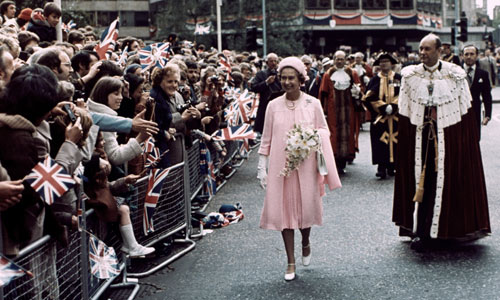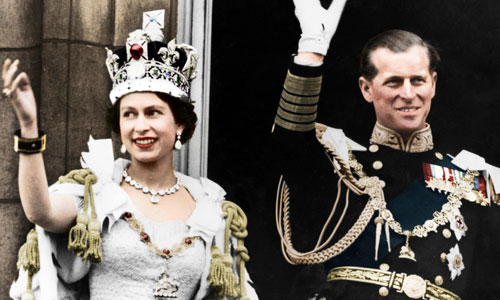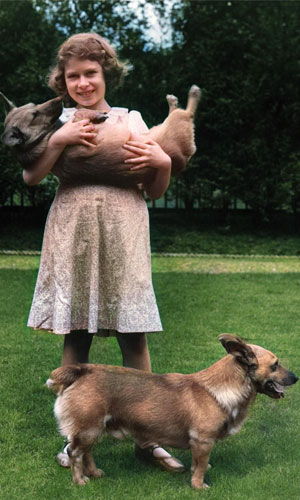I am writing this just a few hours after the very sad news broke about the death of The Queen.
Already the media is saturated with many heartfelt messages of condolence from all around the world, as well as reflections on an extraordinary life of service to our nation. Although it’s unlikely I can say anything that has not already been said better by others, I would like to reflect briefly on how important The Queen has been, especially in her latter years, to many older people, and how she has served as an example of what it is like to age.
Other lives reflected in coverage of Her Majesty The Queen’s
I suspect that in general, the older you are, the more unsettling it is to experience the loss of someone who has been part of your life for such a long time, even if you never actually met them.
So it may be for many older people today, the oldest of whom will have memories of The Queen's Coronation in 1953, and indeed of her life before that as a young Princess. My Mum died last year aged 92 and she certainly remembered those days well and, for example, the fact that two of her best friends had eventually married after having met sleeping out overnight, staking out a good spot to view the Coronation procession the following day.
 The death of King George VI and The Queen’s accession to the throne were formative events for many at the time, just as I imagine The Queen’s death and King Charles III’s forthcoming Coronation will be for us. I myself remember going to one of the events of The Queen’s Silver Jubilee in 1977 as a teenager – a big fireworks display over the river – little thinking that the same person would still be on the throne forty-five years later.
The death of King George VI and The Queen’s accession to the throne were formative events for many at the time, just as I imagine The Queen’s death and King Charles III’s forthcoming Coronation will be for us. I myself remember going to one of the events of The Queen’s Silver Jubilee in 1977 as a teenager – a big fireworks display over the river – little thinking that the same person would still be on the throne forty-five years later.
Even as the world has changed around us, somehow The Queen has always been there as a symbol of continuity. Men and women born at about the same time as The Queen will have seen their own lives reflected to a degree in all the television coverage of her over the years, despite the differences in status and wealth. Everyone goes through the same life stages as they age – there’s no escaping that, however privileged or not you may be.
The loss of a loved one in extreme old age
I feel for those very old people today, just as I do for anyone who has lost an older relative recently, who will be reminded of what that felt like by all the coverage of The Queen’s sad demise.
 Coincidentally, I spent an evening this week with a 66-year-old friend whose own mother died two weeks ago, aged four years younger than The Queen. We reflected on the fact that while it could never be said to be a surprise when someone you love deeply dies in their nineties, this doesn’t in any way lessen the pain.
Coincidentally, I spent an evening this week with a 66-year-old friend whose own mother died two weeks ago, aged four years younger than The Queen. We reflected on the fact that while it could never be said to be a surprise when someone you love deeply dies in their nineties, this doesn’t in any way lessen the pain.
My thoughts go to all The Queen’s loved ones who will be experiencing an acute sense of grief at the moment – and doing so in the full glare of publicity, which must make it very hard.
A model of ageing gracefully and a refutation of ageism
 In a society in which examples of ageism are not exactly hard to find, The Queen has been a fantastic model of what it is like to grow older, and how you still retain the essence of who you are, even as your body gradually becomes less robust with the passing of the years.
In a society in which examples of ageism are not exactly hard to find, The Queen has been a fantastic model of what it is like to grow older, and how you still retain the essence of who you are, even as your body gradually becomes less robust with the passing of the years.
Older people are often ‘othered’, but it was impossible to ‘other’ The Queen as she was someone with whom we were so very familiar. The fact that she kept doing the things she enjoyed, like spending time with her horses and dogs, and continued to work in the job to which she was profoundly committed until two days before she died, was wonderful. One might also conclude that nothing became her so much as the manner of her passing: peacefully, and in a place she regarded as home. It’s what we would wish for every older person.
May The Queen rest in peace and may The King, Age UK’s Patron, and the Queen Consort, Patron of The Silver Line, take comfort and inspiration from her long life and many achievements.

